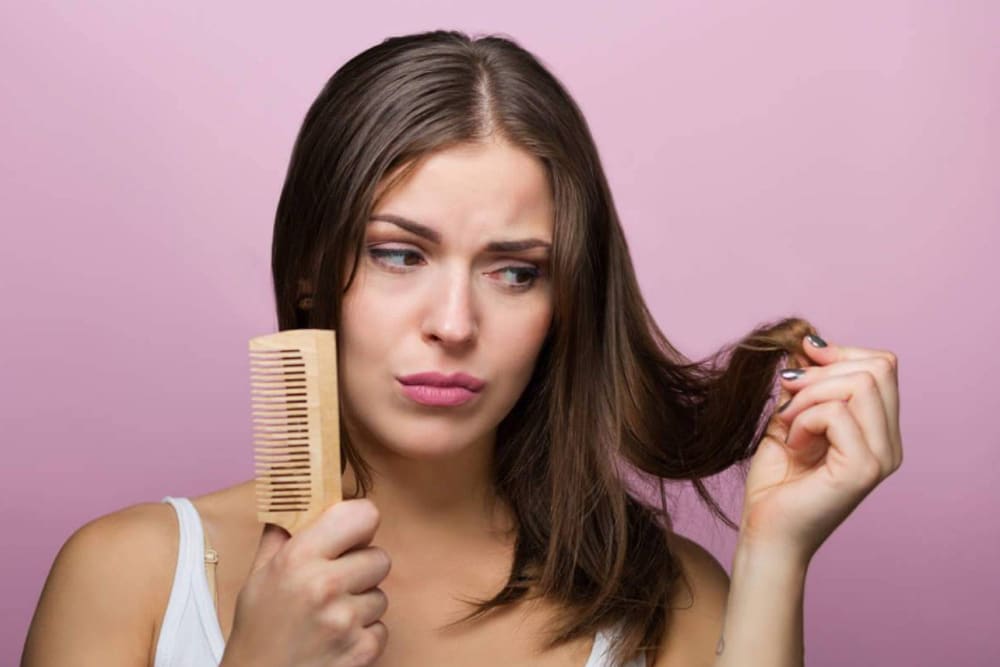What the Best Hair Care Routines for Oily Hair Types Include?
Imagine waking up feeling refreshed looking in the mirror and seeing that glossy shine in your hair – only it's not the healthy shine you've dreamt of but the greasiness that oily-haired folks are all too familiar with. Dealing with oily hair can often feel like a never-ending cycle: wash dry style and then in what feels like a blink of an eye the oils are back in full swing. But what if we told you that with the right approach you can break this cycle?
Navigating the world of oily hair care can seem daunting. With countless products and treatments claiming to be "the ultimate solution" it's easy to feel overwhelmed and unsure about where to start. But understanding the root causes of excess oil production and having a tailored hair care routine can make all the difference. This guide aims to demystify the process laying out actionable tips and tricks to ensure your hair stays fresh and vibrant for days on end. Let's dive into the world of oily hair care and unlock the secrets to lustrous non-greasy locks!
What are the Best Hair Care tips for Oily Hair?
- Choose a Clarifying Shampoo: Specifically designed to tackle dirt oil and product buildup these shampoos go deeper than regular shampoos to cleanse without stripping. For best results use once a week but remember not to overdo it to avoid drying out your scalp.
- Limit Conditioner Use: Instead of applying conditioner from root to tip focus only on the ends. Opt for lightweight non-greasy conditioners that hydrate without adding extra oils.
- Don’t Over wash: While the urge to wash daily can be strong doing so strips the scalp of its natural oils triggering it to produce even more in compensation. Aim for 2-3 times a week.
- Embrace Dry Shampoo: This is a lifesaver for oily-haired individuals. Not only does it absorb excess oil but it also revives volume and texture. Choose one without heavy fragrances or chemicals.
- Mind Your Diet: It's not just about external care; what you eat can impact your hair's oil levels. Foods high in fats and oils can contribute to an oily scalp. Incorporate more greens whole grains and protein-rich foods into your meals.
- Keep Your Hands Off: The more you touch your hair the more oil you introduce. If you're someone who frequently runs their fingers through their hair try to minimize this habit.
- Natural Hair Masks: Natural remedies can often be the most effective. Ingredients like aloe vera lemon juice and apple cider vinegar can be excellent for an oily hair at-home treatment. They help balance the scalp's pH levels and reduce excessive oiliness.
- Brush with Care: Invest in a good quality brush. Natural bristle brushes can help distribute oils from the scalp to the hair lengths ensuring hydration without greasiness. However avoid excessive brushing.
- Avoid Heavy Styling Products: Gel mousse or wax can weigh down oily hair and contribute to oil build-up. Opt for lighter products like sprays or serums and always check the ingredients to avoid silicones and sulfates.
- Rinse with Cold Water: Hot water can stimulate oil production. Cold water on the other hand tightens the hair cuticles reducing the amount of oil that seeps out. It also adds a natural shine to your hair.
- Regular Haircuts: Split ends and damage can exacerbate oily hair issues. Regular trims can prevent this ensuring your hair remains healthy and manageable.
- Know Your Hair Products: It's crucial to know what's in the products you're using. Avoid those with heavy moisturizing properties or silicones which can weigh down hair. Instead look for balancing or volumizing properties.
What things to keep in mind for oily hair care routine?
- Scalp Health is Crucial: Remember that oily hair often stems from an oily scalp. Focus on products and treatments that promote a healthy scalp environment.
- Products Matter: Always choose hair care products suited to oily hair types. Read ingredient labels and avoid those with heavy oils or silicones.
- Environmental Influences: Whether it's humid weather a dusty environment or indoor heating external factors play a huge role in how oily your hair gets. Consider these when setting up your routine.
- Seek Expert Advice: If you've tried various methods and nothing seems to work it might be time to consult with a trichologist or dermatologist.
- Monitor Hair Health: Keep an eye out for signs of other issues like dandruff or hair thinning which can sometimes accompany oily hair.
- Lifestyle Choices Play a Role: Diet stress and even your exercise routine can influence oil production. Regular exercise can sometimes increase oil production due to sweat but it also improves blood flow and overall scalp health. So it's a balancing act.
Conclusion:
Navigating the complexities of oily hair might seem daunting initially but remember every hair type comes with its own charm and challenges. Oily hair with the right care can look just as fabulous as any other type. It’s all about understanding the science behind the oiliness and tweaking your daily habits and routines to create the perfect balance.
With the treasure trove of tips provided you’re not just addressing the symptom but the root cause. Implementing even a few of these into your routine can bring a noticeable difference. And the best part? As you adjust and find what works best for you you’re not just getting great hair days out of it but you're also learning more about yourself your patterns and how to best care for your unique self.
Let's face it every hair type has its moment in the sun. With trends shifting there are even times when a slightly glossy look is the rage. So don't let the occasional greasy day get you down. Embrace your hair learn its quirks and remember confidence can outshine any amount of oil.







